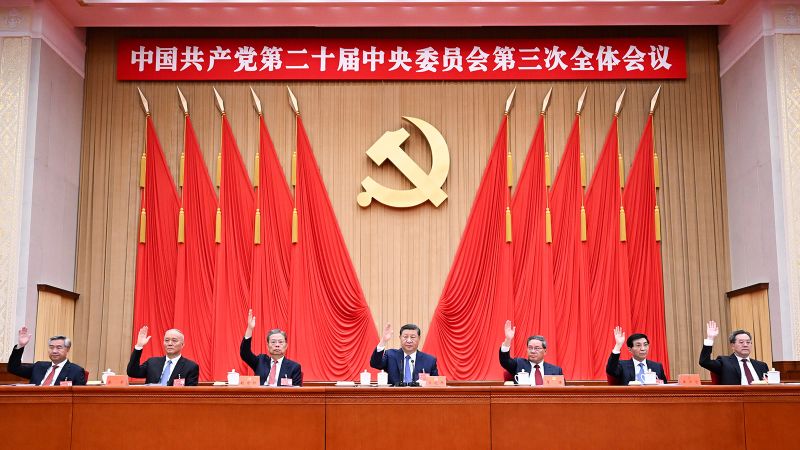China"s Emissions Decline Marks a Potential Turning Point
In a surprising twist in the global fight against climate change, China"s emissions have reportedly fallen by 1.6% in the 12 months leading up to May 2025, according to BBC. This milestone is particularly striking considering that it coincides with a surge in energy demand across the nation. For the first time, emissions decreased without the crutch of economic downturns such as the COVID-19 pandemic, which previously had prompted drops in emissions levels. Given that China is responsible for approximately 30% of global emissions, this development could signal a critical shift in how the world"s largest emitter approaches its climate responsibilities.
Renewable Energy Revolution Fuels Emission Cuts
The decrease in emissions can largely be attributed to China’s aggressive investment in renewable energy. As reported by energy analyst Lauri Myllyvirta from the Centre for Research on Energy and Clean Air, the nation has installed over half of the world’s solar and wind capacity in recent years. In April 2025, wind and solar energy collectively generated more than 25% of China"s electricity for the first time, marking a significant turning point in a country historically dependent on coal. This rapid expansion raises questions: can China sustain this momentum, or will it face obstacles that derail progress?

Building a Great Solar Wall in China
Environmental Justice in the Shadow of Green Technology
While the growth of renewable energy technology is commendable, it comes with a darker side. The push for transition minerals necessary for manufacturing solar panels and wind turbines has led to severe social and environmental repercussions globally. Research from the Business and Human Rights Resource Centre reveals that the rush for these minerals is fueling human rights abuses and environmental degradation in mining regions. As China leads the world in manufacturing green tech—accounting for 60% of wind turbines and 80% of solar panels—it"s crucial to address the ethical implications of this "green" revolution. The pursuit of sustainability must not come at the expense of marginalized communities, who often bear the brunt of environmental exploitation.
China"s Emissions Compared to Developed Nations
Despite these positive developments, China’s energy landscape remains comparable to many Western economies. The UK, for instance, generates approximately 46.3% of its energy from renewables, while the US lags behind at just over 20%. China"s per capita emissions now exceed those of the UK and EU, raising concerns about its commitment to long-term climate goals. The narrative that China is merely following the path set by wealthier nations is increasingly problematic, especially as emissions levels in developing countries like India also rise sharply.

China economy: Key meeting offers few clues on how to tackle worsening ...
The Road Ahead for China"s Climate Commitments
Looking forward, China has set ambitious climate commitments under the Paris Agreement, aiming to reduce its carbon intensity by over 65% from 2005 levels by 2030. However, the nation achieved only a 7.9% reduction by the end of 2024, falling short of its 18% interim target for 2025. This gap underscores the urgent need for policies that will ensure emissions reductions are not only achievable but also sustainable. Experts like Myllyvirta caution that while recent reductions are a positive sign, they must be followed by robust policy initiatives to maintain a downward trend. Without these measures, emissions may plateau, offering no real solutions for climate action.
As China navigates its path toward becoming a climate leader, the implications of its actions will resonate globally. With President Xi Jinping"s recent statements emphasizing the need to "walk the walk," the hope is that China can turn its ambitious goals into tangible results. If it can successfully balance its energy needs with a commitment to environmental justice, the nation may pave the way for a new standard in global climate policy. However, the road ahead is fraught with challenges, and the stakes could not be higher as the world watches closely.







![[Video] Gunfire between Iraqi security forces and Sadr militias in Baghdad](/_next/image?url=%2Fapi%2Fimage%2Fthumbnails%2Fthumbnail-1768343508874-4redb-thumbnail.jpg&w=3840&q=75)
